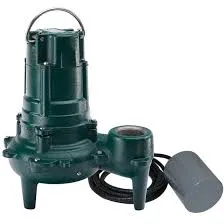Tamil
- Afrikaans
- Albanian
- Amharic
- Arabic
- Armenian
- Azerbaijani
- Basque
- Belarusian
- Bengali
- Bosnian
- Bulgarian
- Catalan
- Cebuano
- Corsican
- Croatian
- Czech
- Danish
- Dutch
- English
- Esperanto
- Estonian
- Finnish
- French
- Frisian
- Galician
- Georgian
- German
- Greek
- Gujarati
- Haitian Creole
- hausa
- hawaiian
- Hebrew
- Hindi
- Miao
- Hungarian
- Icelandic
- igbo
- Indonesian
- irish
- Italian
- Japanese
- Javanese
- Kannada
- kazakh
- Khmer
- Rwandese
- Korean
- Kurdish
- Kyrgyz
- Lao
- Latin
- Latvian
- Lithuanian
- Luxembourgish
- Macedonian
- Malgashi
- Malay
- Malayalam
- Maltese
- Maori
- Marathi
- Mongolian
- Myanmar
- Nepali
- Norwegian
- Norwegian
- Occitan
- Pashto
- Persian
- Polish
- Portuguese
- Punjabi
- Romanian
- Russian
- Samoan
- Scottish Gaelic
- Serbian
- Sesotho
- Shona
- Sindhi
- Sinhala
- Slovak
- Slovenian
- Somali
- Spanish
- Sundanese
- Swahili
- Swedish
- Tagalog
- Tajik
- Tamil
- Tatar
- Telugu
- Thai
- Turkish
- Turkmen
- Ukrainian
- Urdu
- Uighur
- Uzbek
- Vietnamese
- Welsh
- Bantu
- Yiddish
- Yoruba
- Zulu
Telephone: +86 13120555503
Email: frank@cypump.com
செப் . 10, 2024 10:43 Back to list
double suction impeller pump
Understanding Double Suction Impeller Pumps
Double suction impeller pumps have gained significant popularity in various industrial applications due to their efficiency and reliability. These pumps are designed to handle large volumes of fluid while maintaining low energy consumption. In this article, we will explore the working principle, advantages, applications, and maintenance of double suction impeller pumps.
Working Principle
Double suction impeller pumps feature an impeller with two opposing suction inlets, allowing fluid to enter the pump from both sides. This unique design helps to balance the axial forces acting on the impeller, reducing wear and tear and extending the pump's lifespan. When the impeller spins, it draws fluid into the pump and accelerates it outward through the vanes, converting mechanical energy into kinetic energy. The fluid exits the pump through the discharge outlet, and the centrifugal force generated by the impeller is what allows the pump to transport the fluid efficiently across various distances.
Advantages
One of the primary benefits of double suction impeller pumps is their ability to handle high flow rates. They are capable of moving large volumes of liquids, making them ideal for applications in water supply, irrigation, and various industrial processes. Additionally, the design of double suction impellers minimizes vibrations and reduces noise during operation, contributing to a more pleasant working environment.
Another advantage is the pump's efficiency. Double suction impeller pumps generally have a higher efficiency compared to single suction pumps, allowing for lower energy consumption over time. This efficiency is crucial in industries where pumps operate continuously, as it can lead to significant cost savings in energy bills.
Furthermore, the balanced design of these pumps leads to less mechanical stress on the components, which translates into longer maintenance intervals and reduced downtime. As such, double suction impeller pumps are often chosen for their reliability in critical applications.
double suction impeller pump

Applications
The applications of double suction impeller pumps are widespread across various industries. They are commonly used in water treatment plants, where large volumes of water need to be moved efficiently. In the agriculture sector, these pumps support irrigation systems by transporting water from sources to fields.
In the industrial realm, double suction impeller pumps are employed in power plants, chemical processing, and oil refineries, where the demand for robust and efficient pumping solutions is crucial. Moreover, they are also utilized in HVAC systems for building services, ensuring that heating and cooling functions are supported effectively.
Maintenance
Maintaining double suction impeller pumps is essential to ensure their longevity and efficient operation. Regular inspection of pump components, such as bearings, seals, and impellers, is critical to identify any signs of wear or damage. Keeping the pump and its surrounding environment clean helps to prevent contamination and extend the service life of the equipment.
Lubrication of rotating parts should also be checked frequently, and any misalignments should be corrected promptly to avoid unnecessary strain on the pump. Following manufacturer guidelines for maintenance schedules can lead to optimal performance and fewer emergency repairs.
Conclusion
In summary, double suction impeller pumps offer a compelling solution for industries requiring high-efficiency fluid handling. With their ability to manage large flow rates, reduced mechanical stress, and lower operational costs, these pumps are an excellent choice for applications across various sectors. By adhering to regular maintenance practices, users can maximize the benefits of double suction impeller pumps and ensure the longevity of their operations.
-
Heavy-Duty Mining Sludge Pumps - Wear-Resistant Slurry Handling
NewsAug.02,2025
-
Horizontal Split Case Pump with GPT-4 Turbo | High Efficiency
NewsAug.01,2025
-
ISG Series Pipeline Pump - Chi Yuan Pumps | High Efficiency, Durable Design
NewsAug.01,2025
-
Advanced Flue Gas Desulfurization Pump with GPT-4 Turbo | Durable & Efficient
NewsJul.31,2025
-
ISG Series Vertical Pipeline Pump - Chi Yuan Pumps | Advanced Hydraulic Design&Durable Construction
NewsJul.31,2025
-
ISG Series Vertical Pipeline Pump - Chi Yuan Pumps | Energy Efficient & Low Noise
NewsJul.31,2025










